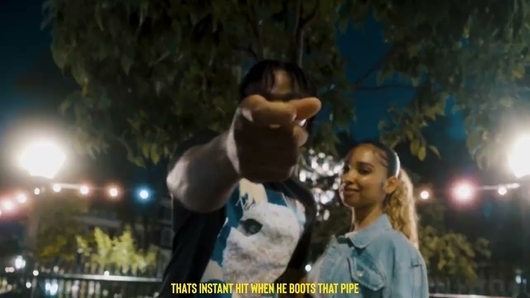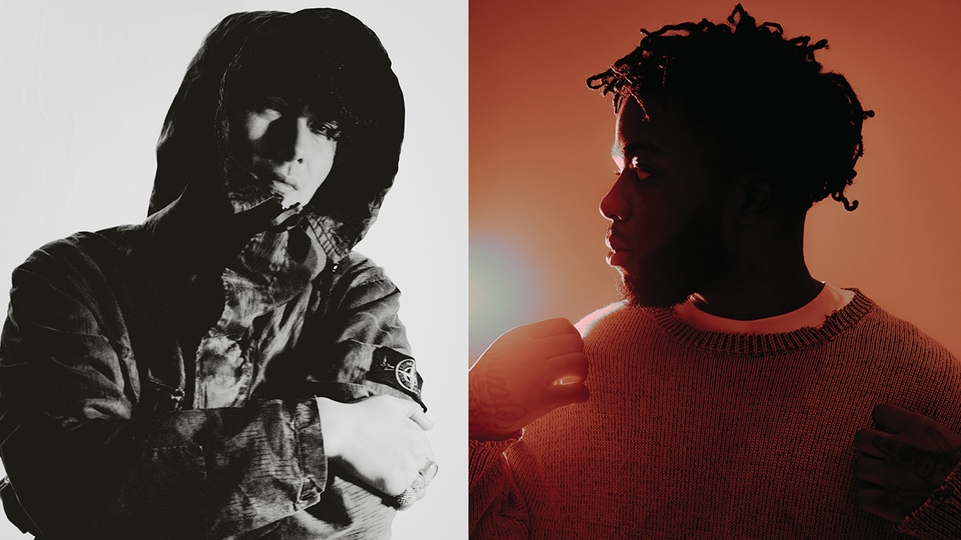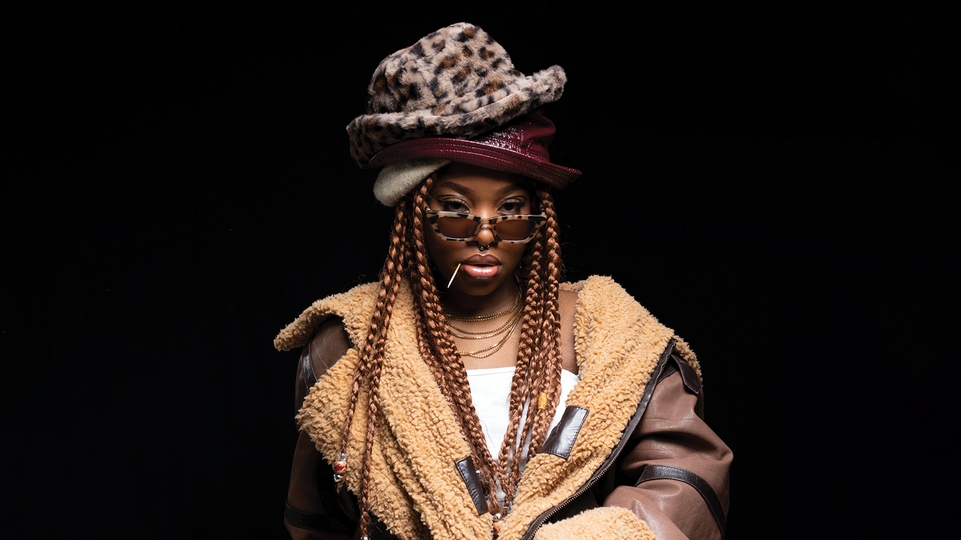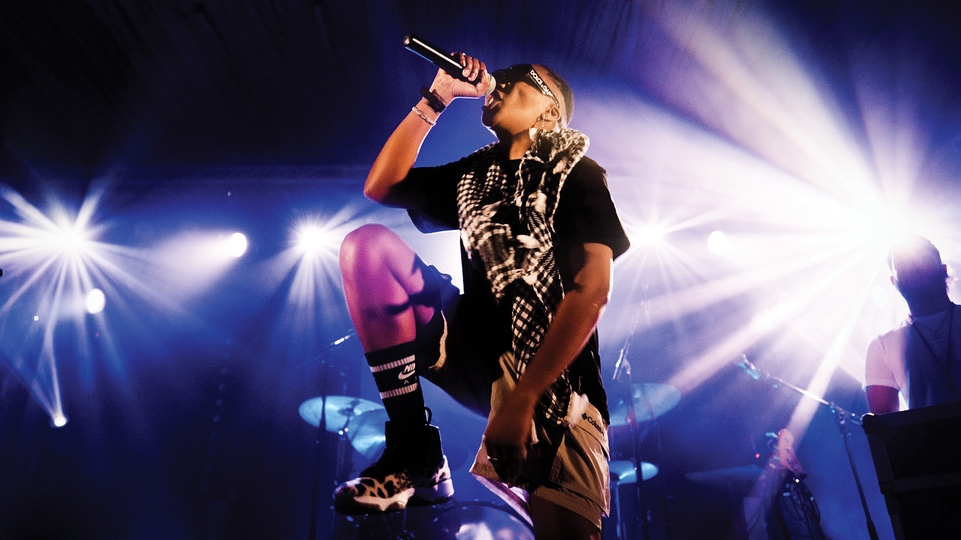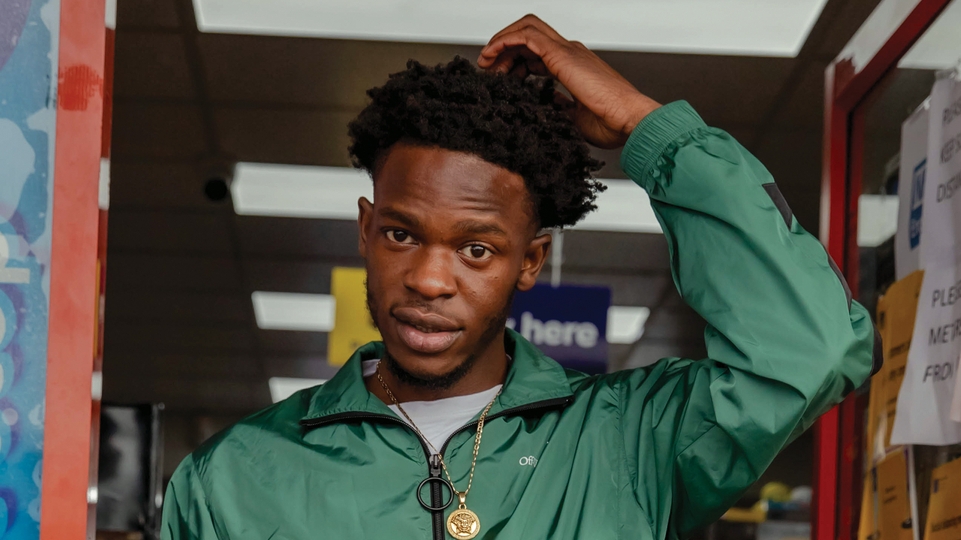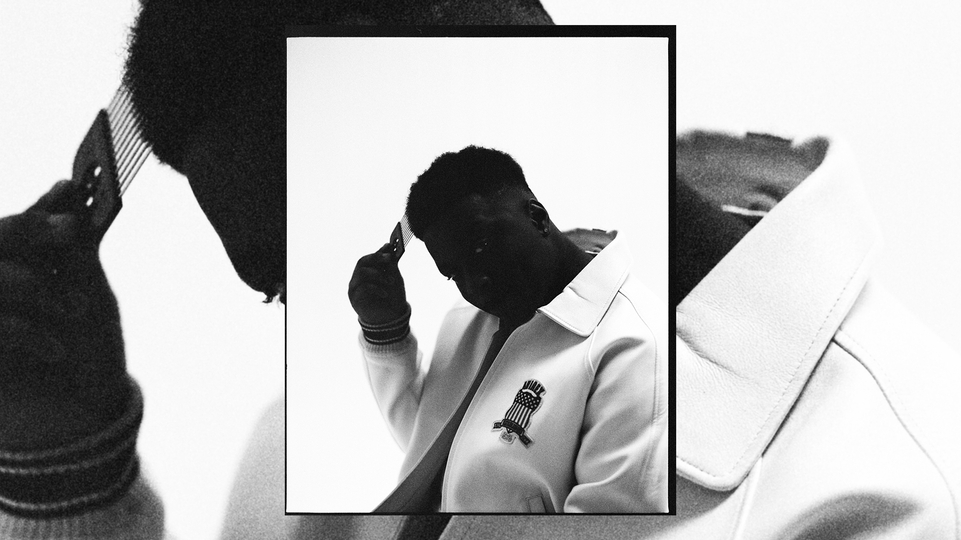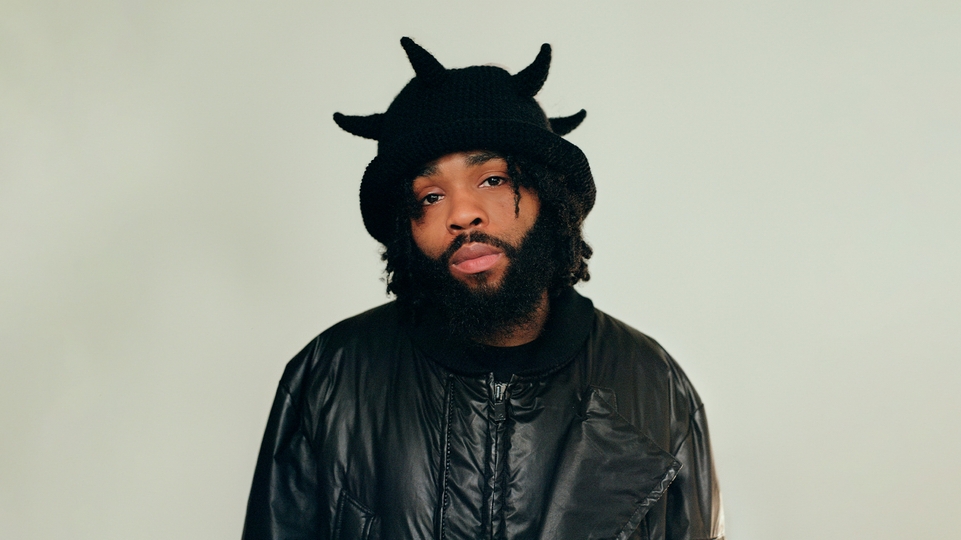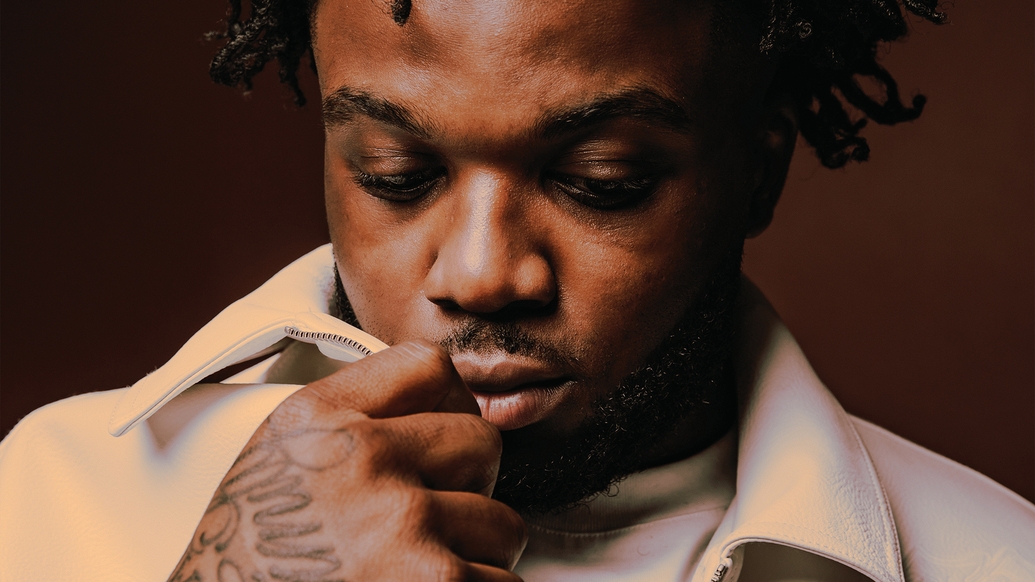
Meet The MC: Blanco
Recently following up his 2021 Best Of British-nominated ‘City Of God’ mixtape with ‘ReBourne’, South London MC Blanco has further distilled his artistic vision in an effort to remain true to himself. He speaks to Rob Kazandjian about how anime, Brazilian culture and loss have influenced him, the early years of his Harlem Spartans crew, and finding a path to a better place
“Wow... that’s a mad question that you’re asking me right now,” says Blanco, a founding member of pioneering drill collective Harlem Spartans, whose solo work has been defined by its incorporation of warm Brazilian baile funk beats and thoughtful lyricism. He takes his time before answering, carefully. “Naruto is number one, the storytelling and the world-building is just amazing,” he says. “Then it gets tricky. But for me, it’s Attack On Titan next, and then Hunter x Hunter is third.”
Blanco is an anime connoisseur, who reflects on questions about the most influential Japanese animations as earnestly as those about his career in music, and fills his own work with anime references. ‘Shippūden’, which has been streamed over 37 million times on Spotify and was the lead single from his 2021 mixtape ‘City Of God’, is named after his favourite Naruto series. Anime also serves as a lens through which Blanco views his journey away from the hostile environment that shaped his youth. “It felt like the outside world was closed off,” he explains.
The son of Angolan refugees displaced by the civil war, he was born in 1999 and raised in Kennington, South London. His generation grew up at the sharp end of austerity policies, with child poverty in the UK rising to levels not seen since before the Second World War, and youth services drained of funding. “Like in Naruto, with Madara and the Six Paths, I could see four paths out the ‘hood,” he says. “I saw the school route, which I didn’t think could change my life. I saw football, and sports more generally. I saw the illegal route, the street stuff. And I saw music.”
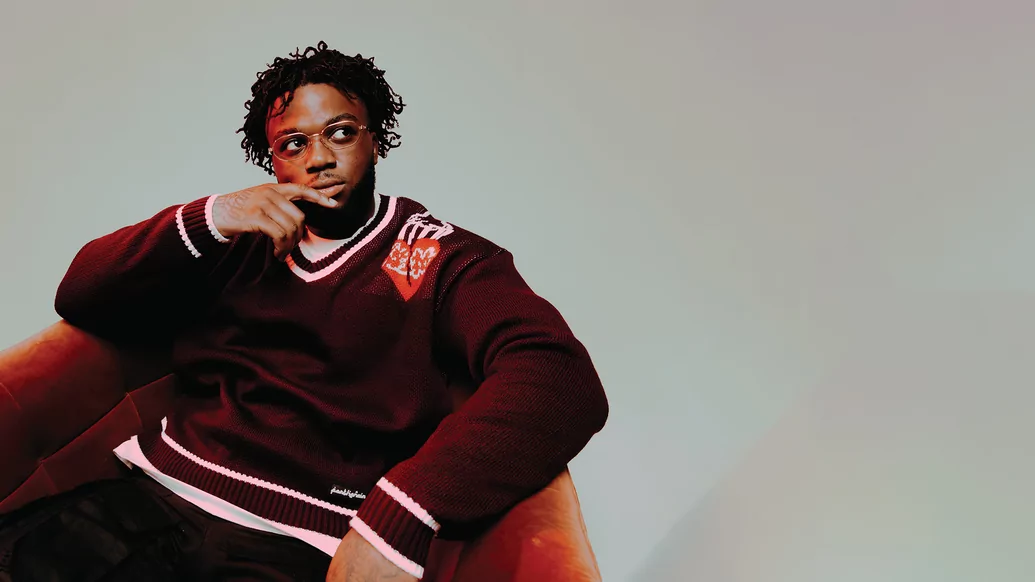
“The police were blocking us from doing shows and labels didn’t wanna sign us. We were going places, though. I clocked that if we kept at it, we could actually get out the ‘hood through music.”
Founded by a group of friends in their local youth club, by 2017 Harlem Spartans were at the forefront of UK drill’s transition from the Chicago-inspired sound popularised by rival Brixton collectives 67 and 150 to its own distinct genre, drawing on road rap’s rugged vocabulary and edging towards grime’s frenetic tempo. Anthems such as ‘Call Me A Spartan’ and ‘Kennington Where It Started’ turned Blanco and his crew — rappers like Active, Bis, Loski, MizOrMac and Zico — into teenage viral stars. But despite their internet fame, they enjoyed none of the comfort and security that stardom might offer. “We didn’t really have a purpose back then,” Blanco explains. “The police were blocking us from doing shows and labels didn’t wanna sign us. We were going places, though. I clocked that if we kept at it, we could actually get out the ‘hood through music. But looking back, there was nothing happy about those times, to be honest.”
Still entrenched in the cycle of territorial violence and retaliation that his lyrics described, Blanco was sentenced to three and a half years in prison in 2018 on weapons possession charges. MizOrMac was sentenced to six. While they were in jail, their friend and fellow Harlem Spartans member Latwaan Griffiths, or Latz, was stabbed to death. After Blanco’s release in 2019, Crosslon Davis — known to millions of UK drill fans as Bis — was murdered too. “Before music, before all the attention, when nobody was in prison and everyone was safe and together... that was a happy time,” he says.
It was while in jail that Blanco began freestyling over Brazilian baile funk beats — the genre cooked up in Rio’s favelas in the 1980s, then criminalised by the state and violently repressed. Through these bright, playful rhythms, he’d found a vessel for expressing himself in a way that connected with his roots. His household moved to the sounds of Angolan artists like Rui Mingas and Yola Semedo, alongside popular Brazilian songs. “I’ve got Brazilian cousins. I was plugged into Brazilian TV shows too, and my dad used to have the Brazilian news on all the time,” he remembers. “So the cultural connection was there, man. I find it very easy to write to those beats.”
When he came home, Blanco introduced his new baile funk-infused sound via ‘Pull Up’, the opening track from his debut solo EP ‘English Dubbed’. He also candidly addresses the impact of losing friends on the project’s fourth track ‘I See The Dead’. “Bro died young, I don’t wanna meet death / I see the dead and it’s all in my head / Even in dreams, I see them again,” he raps. Alongside an increasingly broad sonic palette, these stark reflections on his past life have come to define Blanco’s music. 2021’s ‘City Of God’ mixtape is painted in vivid juxtapositions, with dark, deep thoughts laid over beats that glow like summer sunsets. “What was you doing with a gun / What are you doing to her son,” he asks on ‘Fala’, one of the project’s standout tracks.
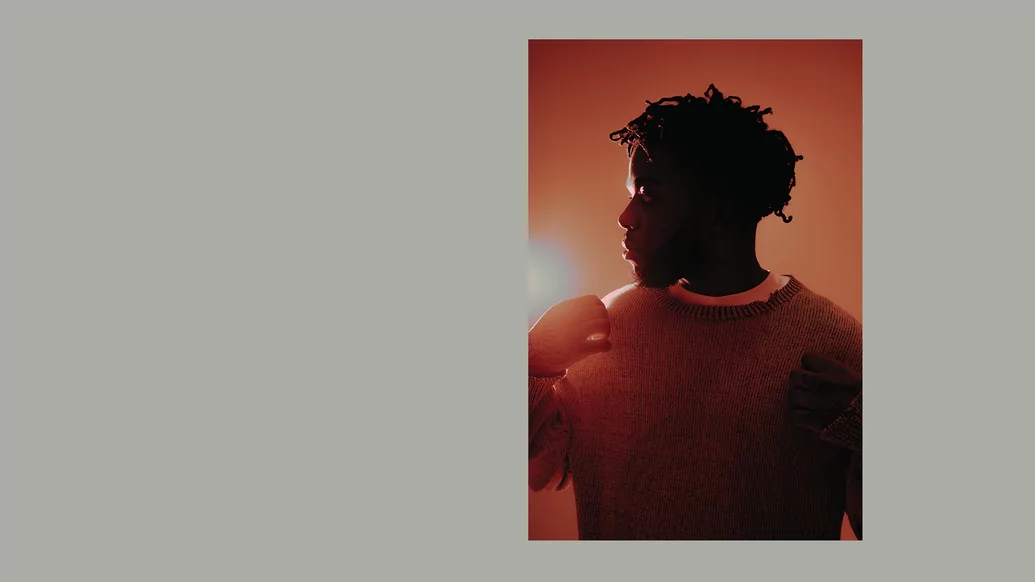
In August, Blanco released his sophomore mixtape ‘ReBourne’. “It’s like a relaunch, a rebirth,” he explains. “I always want to stay grounded, and be true to myself. I wondered if maybe I hadn’t been doing that enough. So I thought, ‘Let me start again’. That’s what this tape is.” The project feels like a further refinement of Blanco’s artistic vision, laced with rich, vibrant and varied production choices: ‘Londis’ is an orchestral dreamscape, ‘Brilliant Mind’ and ‘BET365’ pulse with Brazilian flair, and ‘Carpe Diem’ builds into euphoric jungle in its final minute. “I wanted a world of different beats on this project,” he explains. “I was trying lots of new stuff and wanted lots of different sounds on there.” The project features Kojey Radical and Avelino; their inclusion emphasises the lane of UK rap that Blanco has placed himself in, as a gifted lyricist with a philosophical edge.
For this writer, the project’s centrepiece is ‘Son of a Refugee’ — a poignant, powerful track that pays homage to his parents’ journey to the UK as refugees fleeing war. “One Christmas, my dad sat us down,” Blanco remembers. “And he told us the story, innit. When I understood what he was telling us, I felt bad, because I never knew any of this. But yeah...” His voice trails away. Blanco’s father passed away when he was in jail, and we get the sense that the determination to turn his life around through music was born out of that loss, to honour the sacrifices his parents made for him. “Family pride, pursue this further / Cah they give me a roof and nurtured,” he raps over the track’s mournful keys.
“A series of events and experiences all added up and put me on this path,” he says, reflecting on his journey so far. Blanco grew up feeling like the world was closed off. He’s experienced the claustrophobia of inner-city violence and the confines of a prison cell. Music became the key to his freedom. “This wasn’t chosen for me, it’s just the way things worked out. And now I’m just tryna elevate and be better. I’m not where I want to be yet, but I’ll know when I get there.”
